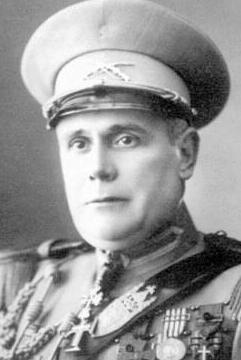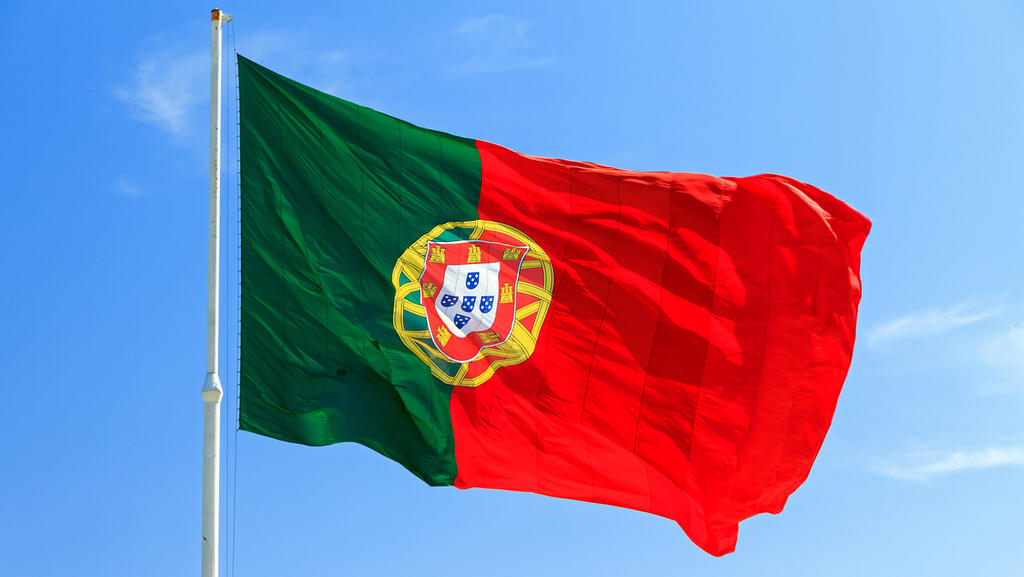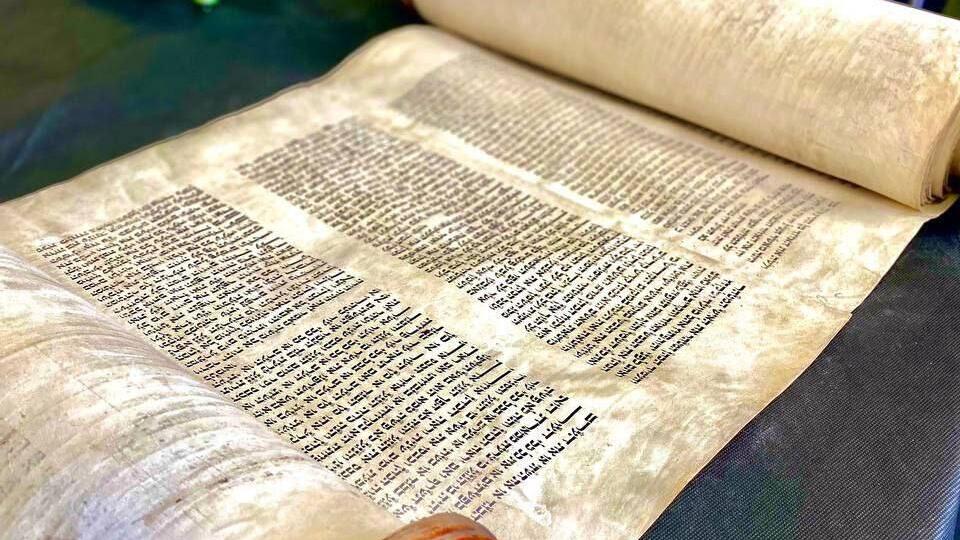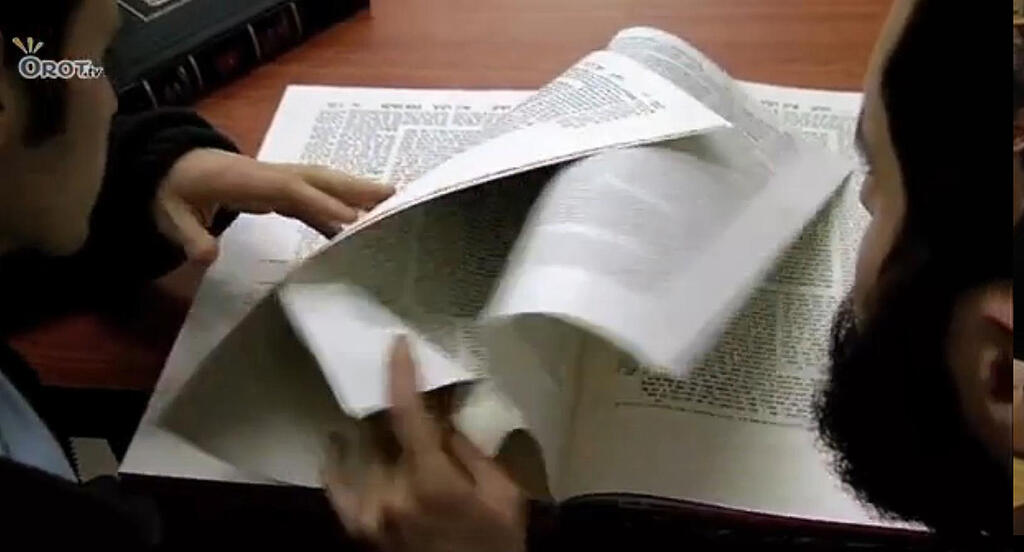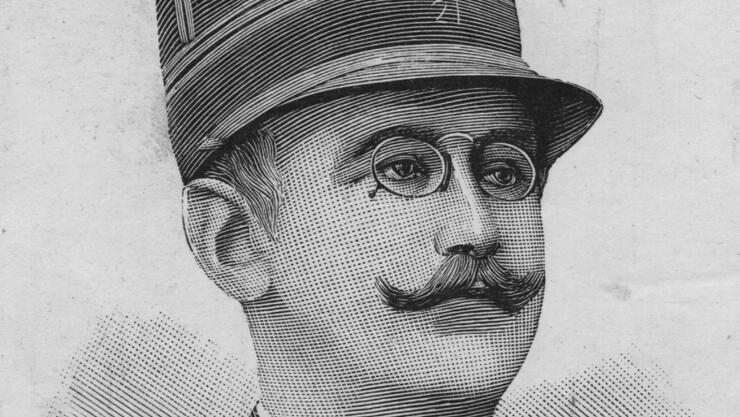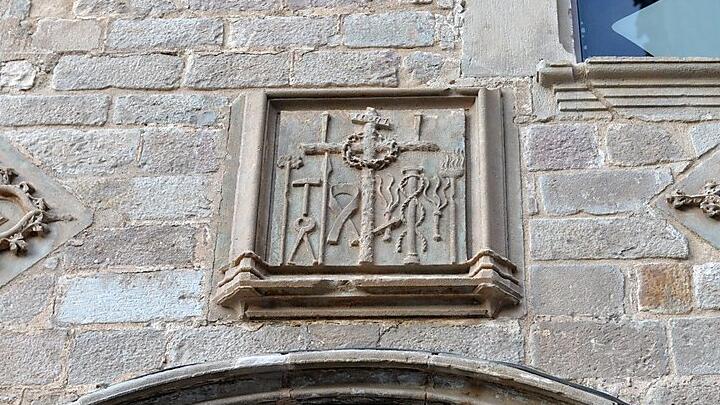Captain Artur Carlos de Barros Basto is known for having been unjustly slandered and dismissed from his military post. Not unlike Alfred Dreyfus, a French artillery officer of Jewish ancestry whose conviction in 1894 on charges of treason became one of the most polarizing political dramas in modern French history.
These two men, important military men and decorated heroes, became the target of European antisemitism, which was to become more pronounced in the middle of the 20th century, with the start of World War II.
The military officer is an unknown figure outside Portugal, unlike Dreyfus, but his story is equally or more interesting. Barros Basto dedicated himself to Jewish writing and even more important was his work as a community leader. In addition, he made a great contribution to the struggle of Conversos - Sephardic Jews who were once forced to convert to Catholicism. In fact, Captain Barros Basto was one of them.
In Portugal, a very special historical phenomenon occurred, because the concentration of Sephardim was so high that to this day, the Portuguese are largely descendants of those "marranos" - converted Jews - who had little choice in 1497, when they were forced to convert or, leave their land. As in Spain, the Jews faced a great dilemma: whether to leave with all that this entailed or to adopt the new faith.
A good number of Jews decided to remain in their homeland, so they had to be baptized and change their names. Some became the most assiduous Christians, mixed with the nobility, with the "old Christians" and even became important members of the Catholic clergy. However, others, in spite of having converted, maintained their Jewish identity while creating themselves a new one, which allowed them to pass unnoticed among their new co-religionists - whether they were new or old Christians.
Barros Basto's family had maintained its Hebrew roots throughout the centuries and was clear about it. So, his grandfather, before he died, revealed to him the truth about his past Sephardic origin and that he wished to die as a Jew.
There were traditions; like the Shabbat candles, with which the young Artur Carlos had been connected since he was a child. But, they were part of his memory, as well as the memory of his ancestors. Until one day, while in Flanders, Belgium, he entered the tent of a French officer on Saturday, saw two candles illuminating the place, and asked him what was the reason for this particular ceremony. The answer was obvious. And, so decisive was it that he wanted to return to the old faith of his ancestors.
Barros Basto, who was born in Amarante in 1887 as a Catholic, decided to embark on the path to a new faith; the same one that centuries ago so many people were forced to abandon, including his predecessors. The Mosaic law, which had also been maintained, in one way or another, among children of those forced to convert - would become the captain's life goal, accompanied by an interest in making others return to their Hebrew origins.
Portugal's national archive in the "Torre do Tombo" has more than 40,000 files of the Inquisition, which was tasked with persecuting the "new Christians" accused of secretly living as Jews over the centuries. Although King Manuel I of Portugal promised the converts they would not be investigated for their religious practices in the private sphere, encouraged them to maintain the rituals and traditions of their old religion, which survived the passage of time in many cases.
The process of conversion to Judaism of Captain Barros Basto - who was also a Freemason - began in Porto and Lisbon at Shaarei Tikvah Synagogue, but without success. Morocco would then be his place of conversion and return to Judaism.
In the city of Tangier, a formal conversion would take place. After returning to Lisbon, he married a Jewish woman from that community, who had not accepted him before. Thus, Lea Israel Montero Azancot became Leah Barros. And, from that moment on, she would begin the campaign of rediscovery and rapprochement of the crypto-Jews.
Barros Basto had felt Jewish even before he converted in 1920; however, he encountered difficulties along the way, and even came close to going as far as Algeria in order to proceed with his conversion. He must have thought of all the others who, like him, would eventually want to return to the faith of their parents.
In Porto, where there were no more than 20 Jews, Captain Barros Basto or Abraham Israel Ben Rosh - his Hebrew name - founded a newspaper, which he called "Halapid" - The Torch - and began to travel to the neighboring villages where Conversos were to be found. In order to found a new community with these people and to build a synagogue that would later be called: Mekor Haim - a source of life.
Barros Basto had learned Hebrew before his conversion, and to such an extent that he later taught the language of his ancestors at the University of Porto. He was also interested in Portuguese medieval Jewish history, among other subjects. Throughout his life, he wrote numerous works on Jewish themes.
Barros Basto's initial plan and ideal was to capture the attention of the Conversos and attract them to his communal-religious project. In fact, very early on he began to collect the necessary funds for the construction of a synagogue. The project was so ambitious and structured that, together with other members of his community, they established a yeshiva, in order to teach the Conversos the precepts of the Law of Moses and the history of the Hebrew people. That yeshiva operated for nine years.
In Alto Trás-os-Montes - behind the mountains - located in the north of Portugal, bordering Spain and the important Douro River, the Conversos were found in rural villages. Chaves, Bragança and Mirandela are some of the towns that the Trás-os-Montes sub-region included. Captain Barros Basto travelled through this territory in search of his hidden, lost brothers, once forced to encircle themselves in very small and closed communities.
The political situation in Portugal had changed when a military coup d'état took place in 1926, giving the Catholic Church a very important position in the society once again. It would not be in their interests for the "marranos" to return to Judaism. Likewise, the fascist Oliveira Salazar dictatorship took power around 1932. Imposing the Catholic tradition and the conservatism of its customs as a regime, similar to the Spanish case with Generalissimo Franco.
All the efforts of Captain Artur Carlos hit a major stumbling block when an anonymous letter warned his superiors of immoral behavior on his part. Accused of homosexuality and of perverting the youth of the yeshiva, a trial was opened against him.
This slander did not succeed, but it did bring to light that the captain had himself circumcised - brit milah - together with a doctor, his yeshiva pupils. As a result, 9,000 crypto-Jews had turned to Judaism, thanks to him.
In 1937, he was expelled from the army, as he was deemed morally unfit to continue in the institution. He could not be accused of being a homosexual, but he could be accused of being a Judaiser, since the Inquisition, which had scourged the entire Iberian peninsula in an atrocious manner, had undoubtedly left an anti-Jewish remnant.
Like Dreyfus, his Jewishness weighed heavily when it came to signing his dismissal. However, Dreyfus was defended by Émile Édouard Charles Antoine Zola, a prominent French writer, in his article J'Accuse - Letter to the President of the Republic - in the newspaper L'Aurore.
This plea, in the form of an open letter, was the key to the reinstatement of Captain Dreyfus' position, name and honor. In the case of Captain Barros Basto, there was never a review of the case during his lifetime and he died with the dishonor brought upon him by the enemies of Judaism.
Despite the setback, Captain Barros Basto managed by 1938 to inaugurate the synagogue that had become his dream. Mekor Haim or the Kadoorie Synagogue (the largest in the entire Iberian Peninsula), in honor of its main sponsors, a prominent Iraqi Jewish family established in Shanghai, China. These Mizrahim Jews decided to erect the building in honor of their matriarch - Laura Kadoorie - who descended from those Jews expelled from Portugal in 1497.
This synagogue was not able to concentrate the community of Conversos that Barros Basto had hoped for. The scandal and finally his removal from office also meant that his students and those families in general that he had slowly attracted to Judaism were afraid and in the end did not want to be affiliated with Mekor Haim.
From the beginning, the Inquisition created a phenomenon of separatism and distrust on the part of these people. Having been forced to convert and not only that, having been persecuted, judged and even killed, was a good enough reason to turn away from that world.
However, the synagogue served great purpose after World War II, becoming a shelter for hundreds of Jews from Eastern Europe who were escaping the horror of the Nazi regime. Barros Basto, therefor, could also be considered a "righteous among the nations".
The Synagogue of Oporto is the most important work of Captain Barros Basto. It represents the freedom, the constant struggle and the great affection that its founder had, together with the Ashkenazi families of the community of Oporto who supported their leader in this noble project.
Captain Barros Basto died in Oporto in 1961, taking to his grave the injustice of being accused of a "crime" called being Jewish. He was the leader of his community until the end. Unlike Dreyfus, in one way or another, Barros Basto died of moral grief.
He was never reinstated in the army, nor was his case reviewed. Until 2012, the Portuguese state posthumously reinstated Barros Basto as a captain, thanks to the efforts of his granddaughter Isabel Ferreira Lopes. So, let the memory of Barros Basto be live on.


